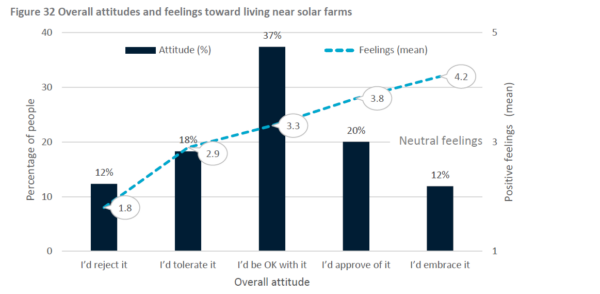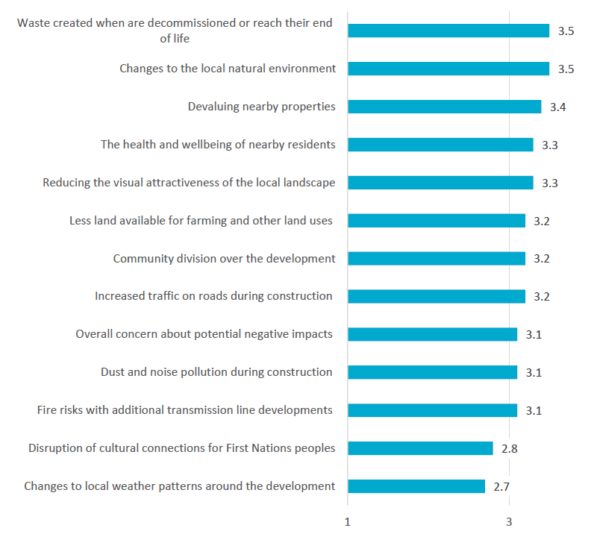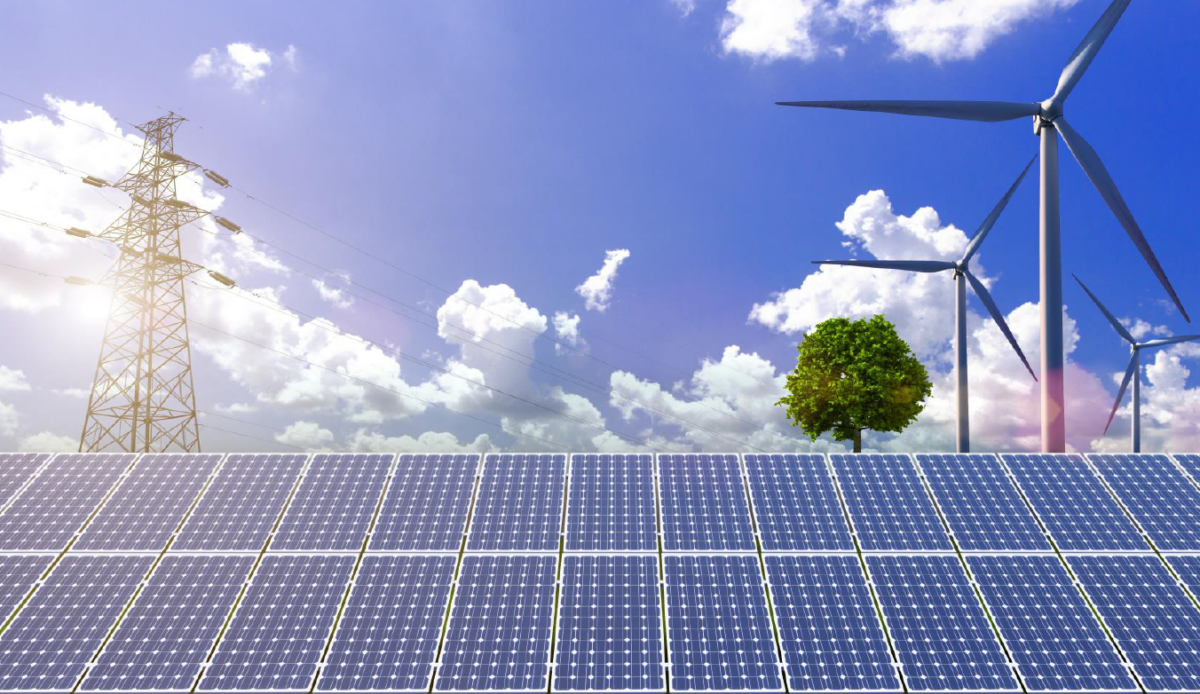A Commonwealth Scientific and Industrial Research Organisation (CSIRO) survey, Australian Attitudes Toward the Energy Transition, has found solar farms are the most accepted form of renewable energy among the 6,707 people around Australia surveyed about the country’s energy transition.
Researchers suggested one reason for the finding was the high adoption of rooftop solar, but respondents reported low levels of knowledge about solar farms and raised concerns accordingly.
Environmental impacts, including waste created by end-of-life panels, have the potential to sway people’s attitudes against solar farms if subjected to misinformation or should recycling solutions not be addressed or prevent solar panels ending up in landfill, researchers said.
Compared to a 2020 survey, the latest results showed a 7% decrease, down from 95% to 88% in the percentage of people who would tolerate living next to a solar farm.
The researchers said the small decline in social acceptance of solar farms and its underlying factors in the three-year period highlight how social licence needs to be maintained.

Image: CSIRO
Perceived Benefits
Perceptions of respondents about benefits found providing local employment opportunities, and improved energy capacity and reliability for the wider region and state were seen favourably, though there was less agreement that solar farms would contribute to cheaper electricity locally or statewide.
Confidence in their knowledge about solar farms were all under a score of 3 out of 5, with 65% of those willing to live near a solar farm saying they had little or limited knowledge about them, while of people who rejected the idea, 49% indicated moderate levels of knowledge.
When asked what additional information they would like to know, respondents said concerns about their environmental impact, both positive and negative, as well as their effects on local communities, health implications, and their long-term sustainability.
Additionally, there was a desire for transparency in terms of project timelines, costs, and compliance with regulations. Some participants were also interested in the type of technology used and how it may affect wildlife or have cultural significance.

Image: CSIRO
Living with solar farms
Across states and territories, attitudes were similar with the majority in each stating they’d be ok in varying degrees living near a solar farm with the minority in each rejecting it outright in NSW (17%), Victoria and Queensland (12%), the ACT (10%), South Australia and Tasmania (9%), Western Australia and Northern Territory (8%).
Social licence factors were viewed favourably on average and across nine categories, scores out of 5 did not drop below 3.2.
Renewable energy infrastructure’s role in the energy transition scored the highest with 3.8, followed by perceived benefits and social acceptance (3.5), procedural fairness (3.4), distributional fairness, trust in developer and governance (3.3), and perceived impacts and feelings (3.2).
Environmental impacts and concerns about waste disposal when developments were decommissioned were the two highest concerns about solar farms, as well as devaluing nearby properties.
Conducted in partnership with the Department of Climate Change, Energy, the Environment and Water, the survey found responses were similar between metropolitan and regional communities, though people living out of town in regional areas were more negative towards the transition.
The top three priorities of the energy transition for respondents were affordability, energy self-reliance and emissions reductions, with reliability being a close fourth.
Overall, the survey showed communities want comprehensive, transparent information on renewable energy infrastructure developments, their benefits, and any potential drawbacks of projects, including environmental impacts on communities and individuals.
The survey also found transmission lines were seen less favourably compared to other renewable energy infrastructure because people didn’t always recognise the role of additional transmission lines in the renewable energy transition.
This content is protected by copyright and may not be reused. If you want to cooperate with us and would like to reuse some of our content, please contact: editors@pv-magazine.com.








By submitting this form you agree to pv magazine using your data for the purposes of publishing your comment.
Your personal data will only be disclosed or otherwise transmitted to third parties for the purposes of spam filtering or if this is necessary for technical maintenance of the website. Any other transfer to third parties will not take place unless this is justified on the basis of applicable data protection regulations or if pv magazine is legally obliged to do so.
You may revoke this consent at any time with effect for the future, in which case your personal data will be deleted immediately. Otherwise, your data will be deleted if pv magazine has processed your request or the purpose of data storage is fulfilled.
Further information on data privacy can be found in our Data Protection Policy.